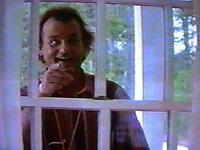
Originally Posted by
Puckstop31

A good question Wom.
Article III of the U.S. Constitution.
"Article III - The Judicial Branch
Section 1 - Judicial powers
The judicial Power of the United States, shall be vested in one supreme Court, and in such inferior Courts as the Congress may from time to time ordain and establish. The Judges, both of the supreme and inferior Courts, shall hold their Offices during good Behavior, and shall, at stated Times, receive for their Services a Compensation which shall not be diminished during their Continuance in Office.
Section 2 - Trial by Jury, Original Jurisdiction, Jury Trials
(The judicial Power shall extend to all Cases, in Law and Equity, arising under this Constitution, the Laws of the United States, and Treaties made, or which shall be made, under their Authority; to all Cases affecting Ambassadors, other public Ministers and Consuls; to all Cases of admiralty and maritime Jurisdiction; to Controversies to which the United States shall be a Party; to Controversies between two or more States; between a State and Citizens of another State; between Citizens of different States; between Citizens of the same State claiming Lands under Grants of different States, and between a State, or the Citizens thereof, and foreign States, Citizens or Subjects.) (This section in parentheses is modified by the 11th Amendment.)
In all Cases affecting Ambassadors, other public Ministers and Consuls, and those in which a State shall be Party, the supreme Court shall have original Jurisdiction. In all the other Cases before mentioned, the supreme Court shall have appellate Jurisdiction, both as to Law and Fact, with such Exceptions, and under such Regulations as the Congress shall make.
The Trial of all Crimes, except in Cases of Impeachment, shall be by Jury; and such Trial shall be held in the State where the said Crimes shall have been committed; but when not committed within any State, the Trial shall be at such Place or Places as the Congress may by Law have directed.
Section 3 - Treason
Treason against the United States, shall consist only in levying War against them, or in adhering to their Enemies, giving them Aid and Comfort. No Person shall be convicted of Treason unless on the Testimony of two Witnesses to the same overt Act, or on Confession in open Court.
The Congress shall have power to declare the Punishment of Treason, but no Attainder of Treason shall work Corruption of Blood, or Forfeiture except during the Life of the Person attainted."
---
Over the years, the SCOTUS has taken on a role of interpreting the Constitution. As you can see, that is not a power directly given it, but it makes sense that it would become so. (The Marshall Court, the case of Marbury vs. Madison was influential.) But herin lies the the key... The Court is supposed to ONLY decide if a law is Constitutional, not to actually make law. Naturally, a ruling they make could motivate Congress to change or create a new law, but a SCOTUS ruling does not create law.
So, as long as the SCOTUS does it's job.... Ruling if laws the Congress and Executive branch pass are legal according to the Constitution, then the system is working as the founders intended. (Ok, at least the Court part. LOL)
To summarize... If you want to CHANGE how the Federal Government of the United States works... (ETA, or confer new 'rights' to citizens.) Amend the Constitution. The founders, in their brilliance, gave us the ability to do so.









 Reply With Quote
Reply With Quote

Bookmarks